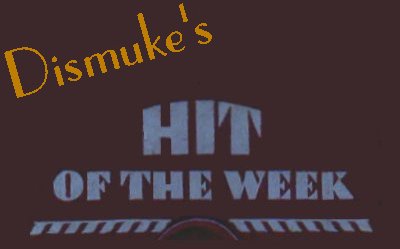Love
Is The Sweetest Thing
Jack Payne And His Band
1932
(Imperial 2774 mx 6200)
Back
Again 
Jack Payne And His Band
1932
(Imperial 2677 mx 6046)
I
Never Had A Chance
Jack Payne And His Band
1934
(Rex 8240 B mx F887)
Let's
Fall In Love
Jack Payne And His Band
1934
(Rex 8147 mx F723)
Lulu's
Back In Town 
Jack Payne And His Band
1935
(Rex 8622 B)
Here are some recordings by British
dance band leader Jack Payne courtesy of guest contributor Matt From College
Station. Payne's was among the more popular British dance
bands of the 1920s and 1930s. From 1928 through 1932 he served as
the Director of Dance Music for the BBC.
All of these recordings were issued
on either the Imperial or Rex labels. Both labels were pressed by
the Crystalate Gramophone Record Manufacturing Company which primarily
issued private label and dime store records. The Imperial label was
discontinued in 1934. The first records on the Rex label were
issued in 1933. Rex records were sold through the Marks & Spencer
retail chain.
- Dismuke
If you have questions or
comments about the music or would simply enjoy interacting with friendly
people who share your interest in it, join in the conversation on Dismuke's
Message Board.
EXTRA
This section will present
78 rpm recordings that do not fall within the range of the vintage pop
and jazz fare that I usually present. Here I will feature
recordings from a wide variety of eras, musical genres and nationalities
as well as occasional spoken word recordings.
Hiawatha
Columbia Orchestra
1903
(Columbia 1156)
Pray
For The Lights To Go Out
Gene Rogers
1916
(Emerson 787 mx 2228)
Here are a couple of ragtime era
7 inch records that Matt From College Station brought over a few months
ago for me to record. Seven inches was the standard size for
very early disc records. The longer playing ten inch record, however,
was more popular with record buyers and soon became the standard size for
popular recordings.
From 1900 through 1919 Victor and
Columbia controlled the American patents for the lateral "zig zag" grooves
that remained in use though the end of 78 rpm era. Other companies
wishing to issue records in the United States had to so so without violating
the Victor and Columbia patents. For some companies such as Edison
and Pathe, this meant using the vertical "hill and dale" used during the
era of cylinder records. Emerson Records got around the patents by
using a sort of hybrid groove that the company claimed would play on both
vertical and lateral record players. Emerson records revived
the seven inch size and sold the records for the bargain price of 25 cents.
Emerson also issued five inch records which sold for 10 cents.
The song "Hiawatha" was a huge hit
during the early 1900s. It was composed in 1901 by Charles N. Daniels
who wrote it under the pseudonym of Neil Moret. Daniel's managed
to convince a reluctant John Phillip Sousa to play the song at one of his
concerts and it became an immediate hit. In 1903 the song enjoyed
further success after it was give Indian-themed lyrics by James O'Dea.
The song sparked a fad for "Indian intermezzo" songs that lasted for a
number of years afterward. Interestingly enough, however, it was
not Indians that inspired Daniels to give the song its name but rather
the rhythm of of the wheels on a train trip through Hiawatha, Kansas.
When this recording of "Hiawatha" was made it was still standard practice
for song and artist credits to be announced at the beginning of records.
I wonder if the artists who recorded it ever thought that people would
still be enjoying their efforts 108 years later.
"Pray For The Lights To Go Out"
was composed in 1916 by Will E. Skidmore and originally carried the subtitle
"A Negro Shouting Song." The song is occasionally performed
even today by country and western bands. Gene Rogers
was an Emerson Records pseudonym for vaudeville performer Morton Harvey.
Harvey is best remembered for the fact that he was the first artist to
record a blues song, "Memphis Blues" in 1914. You can read
more about Morton Harvey here.
- Dismuke
If you have questions or
comments about the music or would simply enjoy interacting with friendly
people who share your interest in it, join in the conversation on Dismuke's
Message Board.


